
Professional Environmental Consulting and Waste Management/Disposal Company
Experts at Serving California Since 2014
Note from our CEO, Jason Moody
Since 2014--At Atlas Environmental Solutions, Inc., we've focused passionately on providing innovative environmental services with professional integrity. We will continually strive to supply our clients, business partners, and associates with optimal solutions, in order to fit the needs of the project. We look forward to becoming your trusted business partner by offering comprehensive environmental expertise in areas of environmental consultation, assessment, survey and inspection, waste management and disposal, and emergency response services.
We look forward to being of service.Sincerely,
Jason Moody
CEO - Atlas Environmental Solutions, Inc.
We Have You Covered
Atlas Environmental is your trusted partner for all hazardous waste management needs, offering comprehensive solutions that prioritize safety and regulatory compliance. Our expert team navigates the complex world of environmental regulations, providing peace of mind to businesses across California.
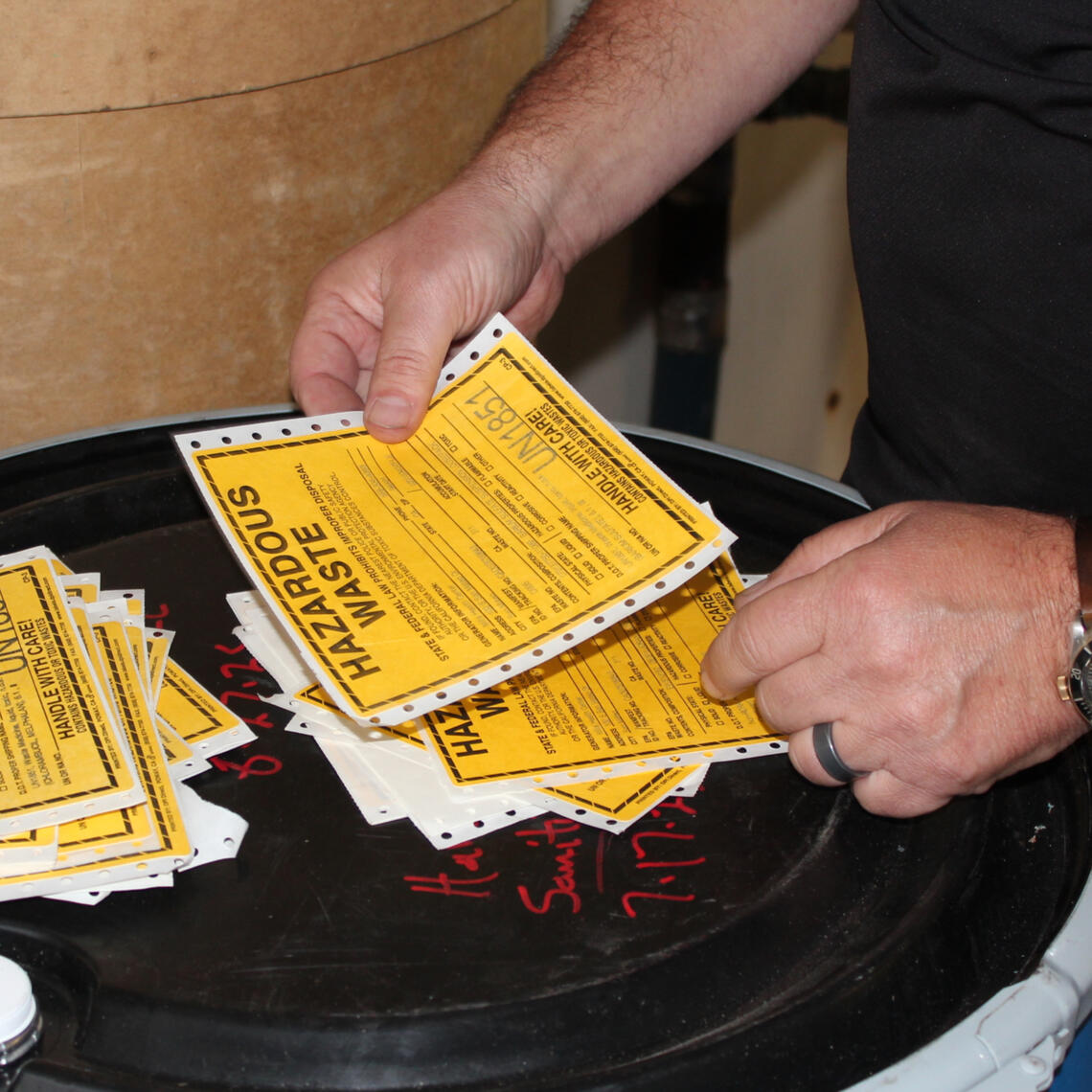
Compliance
Effective hazardous waste management compliance in California is crucial for businesses to avoid costly fines and legal issues, ensuring all hazardous materials are handled, labeled, and disposed of according to federal, state, and local regulations. By partnering with Atlas, our clients confidently navigate complex environmental laws, protecting both their operations and the surrounding community.

Management
Hazardous waste handling, storage, and disposal services in California are essential for safely managing materials that pose a risk to human health and the environment, requiring specialized handling and strict adherence to regulatory protocols. Our experts ensure proper containment, transportation, and final disposal, helping organizations maintain compliance and prevent environmental contamination.

Disposal
Our expertise extends to handling various waste streams, including RCRA hazardous waste, regulated medical waste, universal waste, and non-RCRA liquids and solids in California. They provide disposal services for a variety of materials, such as flammable liquids, corrosive acids, oils, and contaminated soils. We are California licensed and insured to legally dispose of your hazardous waste.

Training
Specialized hazardous waste management training in California is vital for businesses to ensure their employees understand and follow strict state-specific regulations, minimizing the risk of spills and non-compliance. These courses cover essential topics like proper handling, storage, and emergency response, equipping teams with the knowledge to maintain a safe and legal working environment.
Hazardous Waste Services Done Right
Working with Atlas Environmental provides a crucial layer of safety and expertise for businesses, ensuring that all hazardous waste is managed with the utmost professionalism and in full compliance with complex California state and federal regulations. Their partnership gives companies peace of mind, knowing that a dedicated team is handling everything from proper disposal and transportation to comprehensive compliance training.
Environmental Services
Atlas’s professional staff provides comprehensive environmental solutions for projects in all stages, including the identification, monitoring, cleanup/remediation, and abatement of nearly all major contaminants.
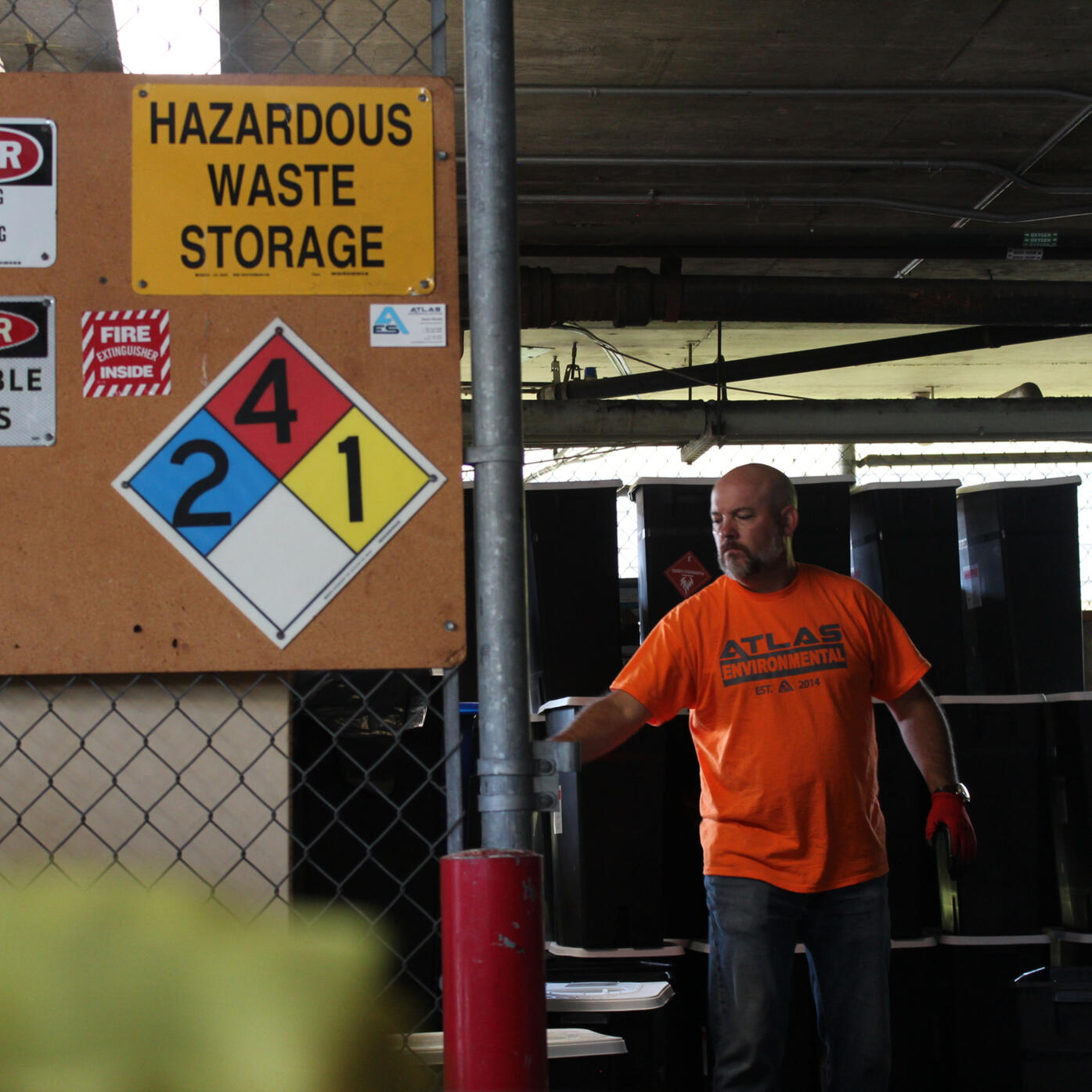
On-Site Services
Disposal/recycling of hazardous waste streams including RCRA and California hazardous wastes, flammable liquids, caustic/acid solutions, oils, and toxic materials.
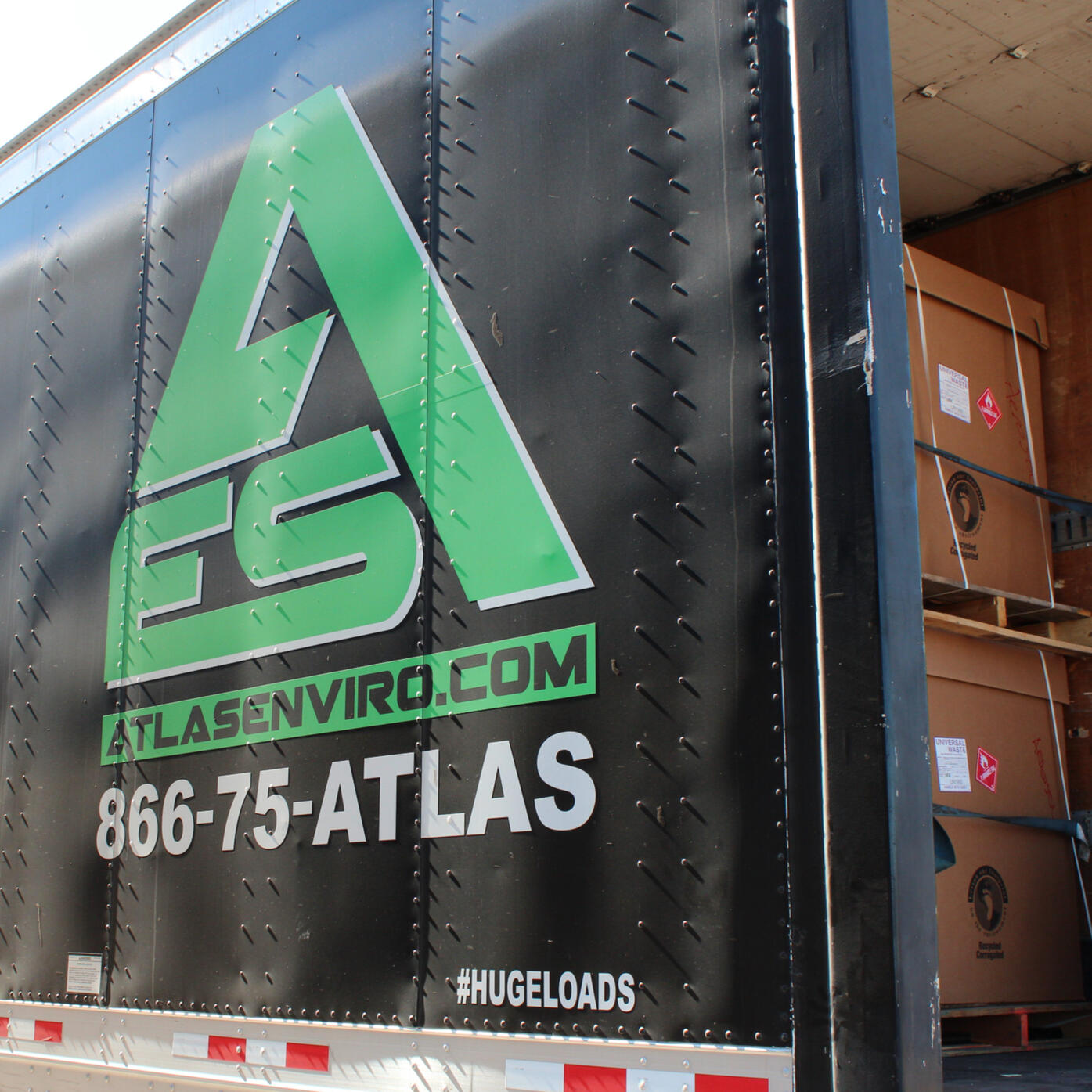
Hazardous Waste Transportation
Hauling and disposal/incineration of regulated waste including hazardous, universal, and medical waste streams in California.
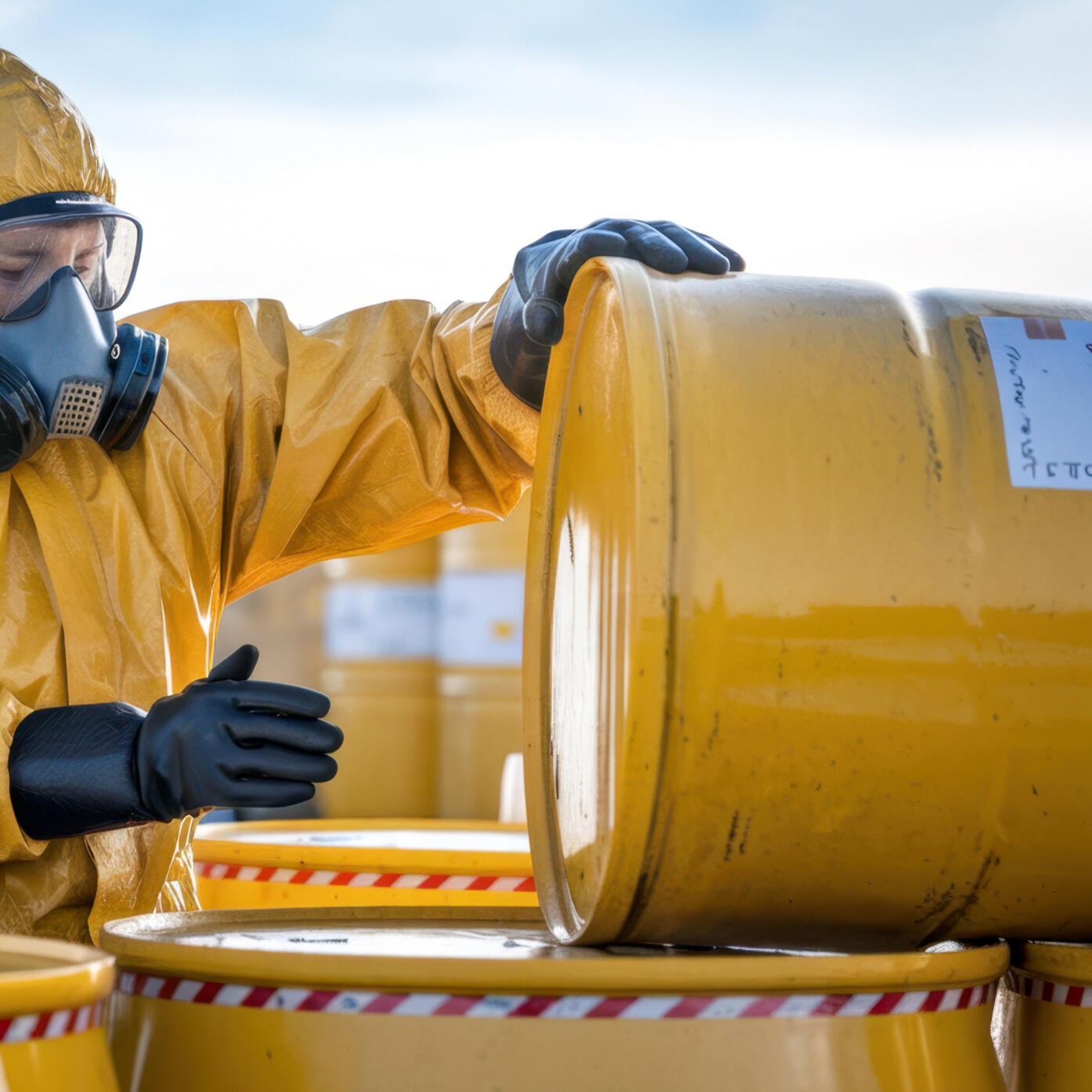
Hazardous Waste Recycling
Handling and recycling of certain hazardous waste and universal waste streams including fluorescent light bulbs, ballasts, consumer batteries, lead-acid batteries, and aerosol cans.
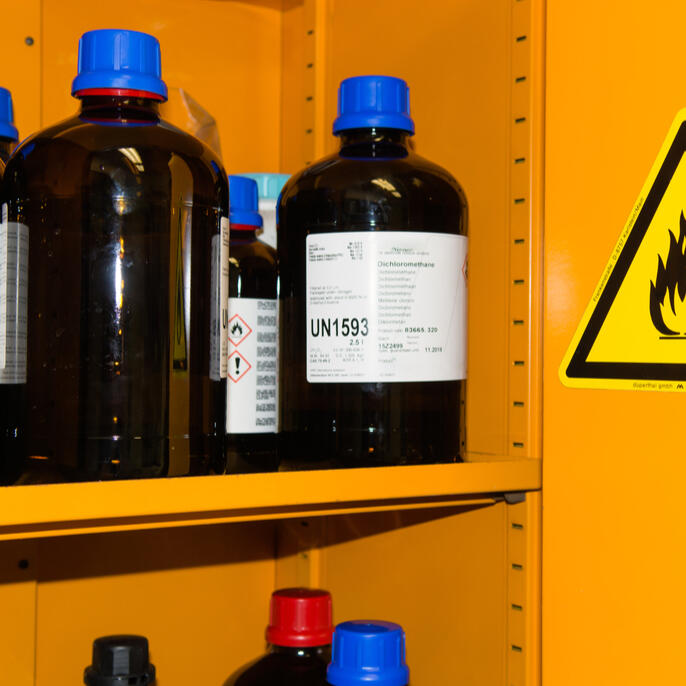
Lab-Packing
Lab-packing of miscellaneous hazardous waste chemicals. Serving educational facilities, laboratories, and municipalities in the state of California.

Remediation
Remediation and removal of contaminated soil is a complex process that requires specialized knowledge and equipment. We examine and execute based on several factors; including the type and concentration of contaminants, the size of the contaminated area, and the soil type.
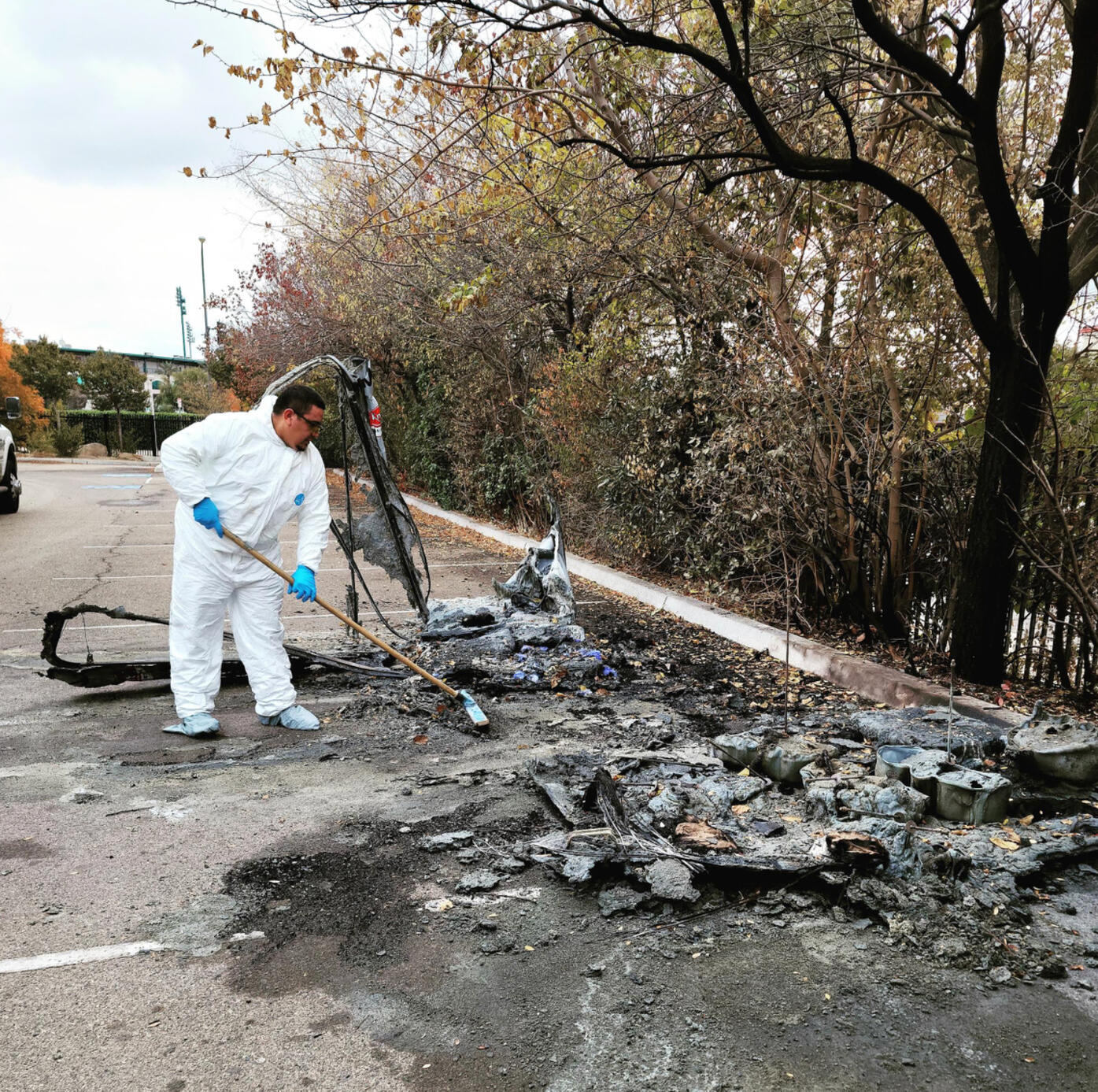
24-hour emergency
24-hour emergency response service is a critical component of environmental management, particularly for hazardous materials and environmental incidents. Our service provides immediate, round-the-clock access to trained professionals who can assess, contain, and mitigate environmental emergencies.

Hazardous Waste Emergency?
Hazardous waste emergencies can include chemical spills, lab accidents, and accidental releases of toxic or flammable materials that pose risks to people and the environment. Atlas Hazardous Waste Removal responds quickly with trained technicians, proper containment, and safe transport to licensed disposal facilities. We ensure full compliance with EPA, DTSC, and OSHA regulations, minimizing liability and protecting both your team and your property.
Hazardous Waste Management for Hospitals
California hospitals must adhere to strict regulations for managing hazardous waste, which includes biohazardous, chemotherapeutic, and pharmaceutical waste, as outlined in the state's Medical Waste Management Act (MWMA) as well as RCRA pharmaceuticals and other hazardous waste streams. These facilities are legally responsible for their waste from the point of generation to final disposal, a concept known as "cradle to grave" responsibility, and face significant penalties for non-compliance.
We are ready to assist your organization.
At Atlas Environmental Solutions, Inc., we are covered--So you are covered. We carry all major permits needed to operate a top level hazardous waste removal and disposal business in California.
Contact us for a Quote
Waste Management and Disposal

Waste Management and Disposal Services provided by Atlas include:
• Handling and disposal/recycling of hazardous waste streams including RCRA and California hazardous wastes, flammable liquids, caustic/acid solutions, oils, and toxic materials
• Hauling and disposal/incineration of regulated medical waste including sharps, pharmaceutical, chemo, and pathological wastes
• Handling and recycling of universal waste streams including fluorescent light bulbs, ballasts, consumer batteries, lead-acid batteries, and aerosol cans
• Lab-packing of miscellaneous hazardous waste chemicals
• Remediation/removal of contaminated soil
• 24-hour emergency response spill clean-up services
Depending on the types of waste your business creates, several regulatory agencies can monitor your Environmental Compliance at any time. These include the Environmental Protection Agency (EPA), the Department of Toxic Substance Control (DTSC), and the Occupational Safety and Health Administration (OSHA). Atlas focuses on providing cost effective disposal of your regulated wastes while providing the highest standards of environmental compliance with these agencies in mind. Atlas can support your business by handling the identification, collection, storage, disposal, and documentation of your waste.
Removal and disposal of non‐hazardous and hazardous waste
Handling, removal, and disposal of hazardous waste streams including RCRA and California hazardous wastes, flammable liquids, caustic/acid solutions, oils, and toxic materials RCRA pharmaceutical management/disposal for medical facilities
Removal and disposal of regulated medical waste including sharps, pharmaceutical, chemo, and pathological wastes
Handling and recycling of universal waste streams including fluorescent light bulbs, ballasts, consumer batteries, lead-acid batteries, and aerosol cans
Lab-packing of miscellaneous hazardous waste chemicals
Emergency response spill clean-up services
Environmental site remediation/soil remediation
Tank cleanup and removal
Site Contamination & Remediation

Common Site Remediation Methods:
Excavation & Off-Site Disposal (dig and haul)
Soil Washing (removes contaminants from soil particles)
Stabilization & Solidification (immobilizes contaminants)
Capping & Containment (isolates contamination in place)
Bioremediation (microbes break down pollutants)
Phytoremediation (plants absorb or break down contaminants)
Soil Vapor Extraction (SVE) (removes volatile contaminants from soil)
Air Sparging (injects air into groundwater to volatilize contaminants)
Pump and Treat (pumps groundwater, treats it, reinjects or discharges)
Permeable Reactive Barriers (PRBs) (groundwater passes through walls that neutralize contaminants)
Chemical Oxidation / Reduction (injects reagents to destroy pollutants)
Thermal Treatment (uses heat to volatilize or destroy contaminants)
Monitored Natural Attenuation (MNA) (relying on natural processes with monitoring)
Atlas not only offers identification, classification, and monitoring, but also site contamination remediation. In addition to the areas listed below, Atlas also offers incineration services for hazardous and bio-hazardous waste, demolition services, confined space entry, and emergency 24-hour response. See below for Atlas’s most common areas of site contamination remediation:
Soil and Storage Tanks
Remediating contaminated soil and decommissioning above and underground storage tanks can be one of the most difficult environmental tasks a facility can face. Tanks often degrade and leak over time and hazardous materials do not often move uniformly or predictable through soil.
Utilizing the expertise of experienced remediation teams and geologists, Atlas offers the safest and most compliant solutions for removing tanks and remediating soil while maintaining the lowest costs possible. We are happy to communicate on your behalf with any regulatory agency throughout the process, and will ensure all the necessary requirements are met.
Hazardous Waste Disposal

Here are the steps in our CA hazardous waste disposal process:
+Identification & Classification
+Safe Collection & Packaging
+Transportation
+Treatment & Disposal
+Documentation & Compliance
At Atlas, we follow strict state and federal regulations to ensure hazardous waste is managed with safety, compliance, and environmental responsibility at every step. Our process includes:
Identification & Classification – We evaluate all waste streams to properly classify them under California Department of Toxic Substances Control (DTSC) and EPA standards.
Safe Collection & Packaging – Our trained technicians sort, label, and package hazardous waste in approved containers to prevent spills, leaks, or reactions.
Transportation – Waste is transported by licensed, registered hazardous waste haulers who meet all Department of Transportation (DOT) requirements.
Treatment & Disposal – Depending on the type of waste, Atlas directs materials to certified treatment, storage, and disposal facilities (TSDFs) for incineration, recycling, neutralization, or secure landfill disposal.
Documentation & Compliance – We provide full manifests, reporting, and recordkeeping to keep clients in compliance with DTSC, EPA, OSHA, and local regulations.By handling every stage of the process with precision, Atlas helps California businesses reduce liability, protect employees, and safeguard the environment.
Recycling
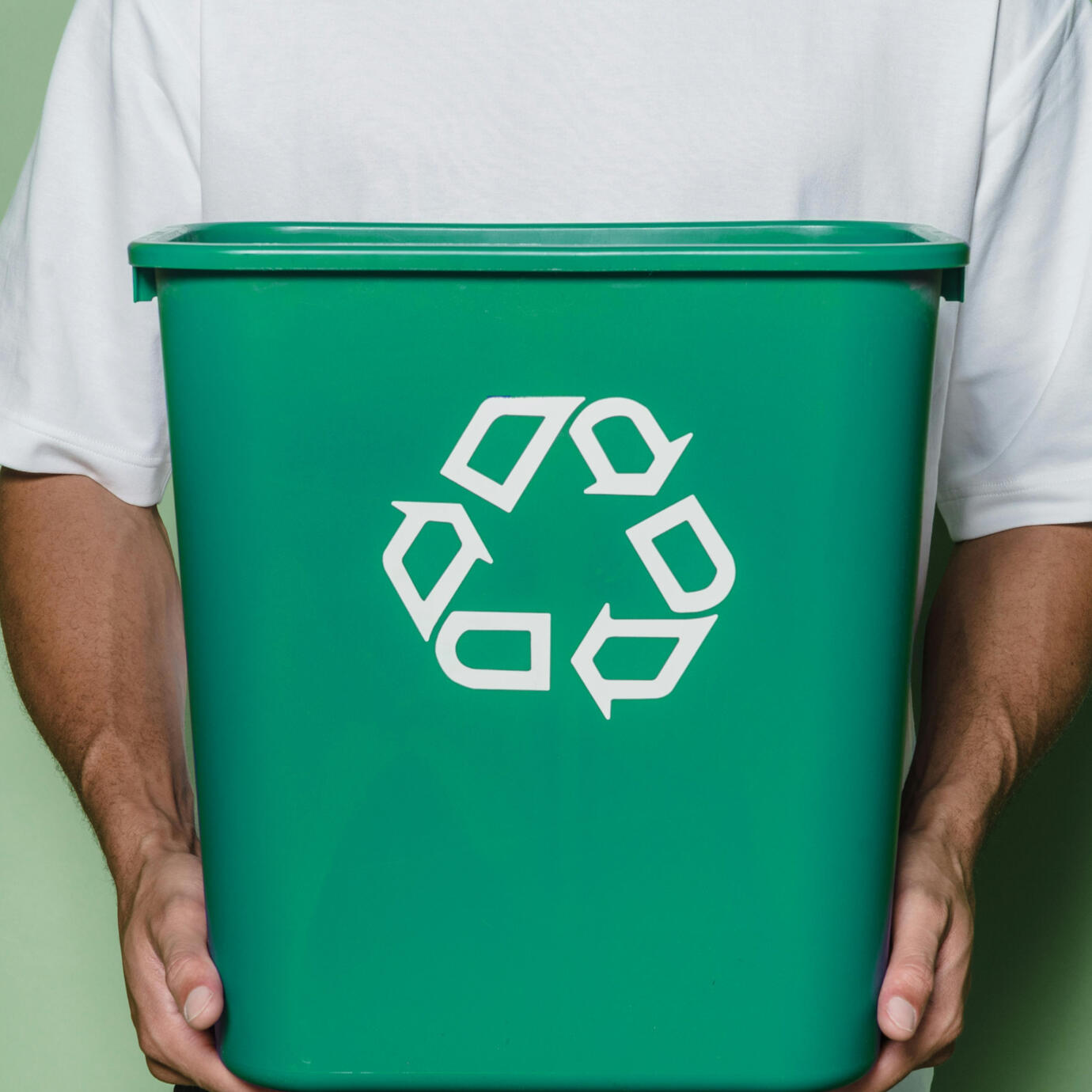
Here is a list of categories that Atlas recycles:
+Solvents & Chemicals
+Oils & Fuels
+Metals
+Batteries & Electronics
+Consumer & Pharmaceutical Waste
+Electronic Waste
Atlas can remove, recycle, and/or recover materials instead of sending them to as well as send them to disposal:Solvent recovery and distillation – cleaning and reusing solvents like acetone, alcohols, and paint thinners.Used oil recycling – re-refining lubricating oils or burning as fuel in approved energy recovery systems.Metal recovery – extracting metals such as lead, mercury, silver, nickel, or cadmium from batteries, electronics, and sludge.Battery recycling – reclaiming lead, lithium, cadmium, and other metals from automotive and industrial batteries.Electronics and e-waste recycling – dismantling electronics to recover precious metals, plastics, and reusable components.Acid and base reclamation – neutralizing and recovering acids or caustics for industrial reuse.Catalyst regeneration – recovering valuable metals (like platinum, palladium) from spent catalysts.Aerosol can recycling – puncturing and recycling both the metal canister and leftover propellant/fuel.Paint and coating recycling – reblending leftover paints or separating usable solvents/pigments.Pharmaceutical take-back and energy recovery – diverting expired or unused medications into waste-to-energy facilities instead of landfill.Fuel blending – combining high-BTU hazardous wastes (like solvents) for use as supplemental fuel in cement kilns or industrial furnaces.Mercury recovery – reclaiming mercury from lamps, switches, and devices for safe reuse.
Solvents & Chemicals
Solvent recovery and distillation (acetone, alcohols, paint thinners)
Acid and base reclamation (neutralizing and recovering for reuse)
Catalyst regeneration (recovering platinum, palladium, etc.)
Paint and coating recycling (reblending or separating usable components)
Oils & Fuels
Used oil recycling (re-refining or burning in approved energy systems)
Fuel blending (high-BTU hazardous wastes repurposed as industrial fuel)Metals
Metal recovery (lead, mercury, silver, nickel, cadmium from sludge, batteries, etc.)
Mercury recovery (from lamps, switches, medical devices)
Batteries & Electronics
Battery recycling (lead-acid, lithium, cadmium, industrial batteries)
Electronics and e-waste recycling (recovering metals, plastics, components)
Consumer & Pharmaceutical Waste
Aerosol can recycling (puncturing and recycling canisters/propellant)
Pharmaceutical take-back and energy recovery (waste-to-energy diversion)
Environmental Consulting and Site Assessment
No matter the size or function of your facility, if you produce waste you are subject to regulatory inspection. There are several regulatory agencies making their rounds throughout the state; the California Environmental Protection Agency (Cal EPA), the Department of Toxic Substance Control (DTSC), California Occupational Safety and Health Administration (Cal OSHA), and local Certified Unified Program Agencies (CUPA).
Atlas provides regulatory consulting, corrective action, online form submittal, and facility information for the following California Environmental Reporting System (CERS) categories:
Hazardous Materials Business Plans
• Hazardous Materials Inventories
• Emergency Response and Training Plans
Hazardous Waste Generator Programs
• Recyclable Materials Report
• Remote Waste Consolidation Annual Report
Storage Tank Programs and Closures
• Underground Storage Tank Reporting
• Hazardous Waste Tank Closure Certifications
• Aboveground Petroleum Storage Tanks
Tiered Permitting Program
• Tiered Permit Application
• Process Review
California Accidental Release Prevention Program
• Design and Implementation of Release Prevention and Spill Response Plans • Spill Response Training
Atlas Environmental Solutions, Inc. 4054
Air Monitoring and Testing
At any given time, there are thousands of particulates in the air that we breathe. Most of them are benign and harmless, but there are several hazardous materials that when introduced into the air of our environment can cause irreparable harm.
To ensure that the environments we are exposed to at our homes and work are not hazardous, Atlas offers the latest and most efficient air monitoring solutions available. Below are the most common types of air monitoring Atlas provides:
Mold/Bacteria
Mycotoxins and bacteria in the environment can cause a large range of negative affects to the human body and once identified should be limited or eliminated if possible. Unlike most hazards, mold and bacteria are living organisms that thrive in everyday environments that people reside and work in. Utilizing physical investigations, moisture monitoring, air sampling, and spore trap analysis we are able to create a picture of the microbial activity in your environment and recommend appropriate action.
Asbestos
For years asbestos was considered a wonder material for its strength and fire resistance and used in everything from insulation to brake pads. While not inherently toxic, it causes irreversible damage to your lungs and digestive system when introduced to your body including mesothelioma, asbestosis, and digestive system cancers. Identifying asbestos-containing materials, especially airborne particulates, is extremely important in ensuring an environment is safe to occupy. We utilize certified asbestos consultants to identify possible asbestos-containing materials and test those materials for the presence of the carcinogen.
Medical Gases
The medical field requires several gases and chemicals to perform procedures including nitrogen, carbon dioxide, formaldehyde, and anesthetic gases. Regularly testing the exposure levels of these gases to employees throughout their tasks is essential to ensuring a safe and healthy work environment. This is why Atlas utilizes industrial hygienists to design, execute, and interpret testing protocols in accordance with all applicable regulations.
Lab Pack Removal

We help school districts, universities, and medical facilities with:
+Safely sorting and segregating various hazardous chemicals to prevent reactions
+Properly packaging, labeling, and documenting chemicals to meet regulatory requirements
+Handling transportation and disposal at licensed facilities
+Ensuring environmental compliance and workplace safety
We safely remove and dispose of chemical waste from labs, schools, hospitals, and industrial sites. Our team sorts, packages, and labels hazardous chemicals to prevent reactions and ensure compliance with all regulations. From inventory to transportation and disposal, we handle everything—helping you maintain a safe, clean, and compliant workplace.
Our lab pack removal services provide safe and compliant handling of chemical waste from laboratories, schools, hospitals, and industrial sites. Services include:
Assessing and inventorying all chemicals for removal
Sorting and segregating incompatible chemicals
Proper packaging, labeling, and documentation to meet regulatory requirements
Safe on-site handling by trained technicians
Transportation to licensed disposal facilities
Proper disposal or treatment of hazardous chemicals
Maintaining detailed records and providing client reports
Guidance on compliance and best practices for chemical management
With our services, clients can ensure environmental compliance, workplace safety, and peace of mind during hazardous waste removal.
Compliance

We can make sure you're compliant in these categories:
+Regulatory & Permitting Services
+Waste Handling & Management
+Training & Education
+Documentation & Reporting
+Emergency Preparedness & Consulting
Depending on the types of waste your business creates, several regulatory agencies can monitor your Environmental Compliance at any time. These include the Environmental Protection Agency (EPA), the Department of Toxic Substance Control (DTSC), and the Occupational Safety and Health Administration (OSHA). Atlas focuses on providing cost effective disposal of your regulated wastes while providing the highest standards of environmental compliance with these agencies in mind. Atlas can support your business by handling the identification, collection, storage, disposal, and documentation of your waste.
Our compliance services that help your hazardous waste management program be successful:1. Regulatory & Permitting Services
Regulatory compliance audits
Permitting assistance
EPA & DOT compliance guidance2. Waste Handling & Management
Hazardous waste management plans
Waste characterization & labeling
Inspection & monitoring services3. Training & Education
Employee training programs (OSHA, hazardous waste handling, emergency response)4. Documentation & Reporting Record keeping
Reporting to regulatory agencies5. Emergency Preparedness & Consulting
Emergency response planning
Environmental compliance consulting
Training

Here is the type of trainings Atlas Provides:
+OSHA (Occupational Safety and Health Administration)
+EPA / RCRA (Resource Conservation and Recovery Act)
+DOT (Department of Transportation)
+Emergency Response & Incident Management
Here is a more detailed list of trainings:
Hazardous Waste Operations and Emergency Response (HAZWOPER)
Hazard Communication (HazCom / Right-to-Know)
OSHA 40-hour, 24-hour, and 8-hour HAZWOPER refresher courses
Emergency response training (spill response, fire safety, evacuation procedures)
RCRA (Resource Conservation and Recovery Act) hazardous waste management training
DOT hazardous materials transportation (HazMat) training
Hazard classification and labeling (GHS training)
Personal Protective Equipment (PPE) use and selection
Respiratory protection training and fit testing
Confined space entry training
Lockout/Tagout (LOTO) safety training
Chemical spill prevention and response
Waste minimization and pollution prevention practices
Universal waste management (batteries, bulbs, electronics, etc.)
Medical and biohazardous waste handling
Site-specific safety plans and drills
Decontamination procedures
Sampling and monitoring techniques
Incident command system (ICS) for emergency response
OSHA (Occupational Safety and Health Administration)
Hazardous Waste Operations and Emergency Response (HAZWOPER) – 40-hour, 24-hour, and 8-hour refresher
Hazard Communication (HazCom / Right-to-Know)
Personal Protective Equipment (PPE) use and selection
Respiratory protection training and fit testing
Confined space entry training
Lockout/Tagout (LOTO) safety training
Site-specific safety plans and drills
Decontamination proceduresEPA / RCRA (Resource Conservation and Recovery Act)
RCRA hazardous waste management training
Waste minimization and pollution prevention practices
Universal waste management (batteries, bulbs, electronics, etc.)
Sampling and monitoring techniquesDOT (Department of Transportation)
DOT hazardous materials transportation (HazMat) training
Hazard classification and labeling (GHS training)Emergency Response & Incident Management
Emergency response training (spill response, fire safety, evacuation procedures)
Chemical spill prevention and response
Incident command system (ICS) for emergency response
Medical and biohazardous waste handling
Contact Atlas Environmental
Home Office:
4054 W. Ashcroft Ave
Fresno, CA 93722
Main Office: 559-313-8200
24/7 Emergencies: 866-547-2857
Email: [email protected]

